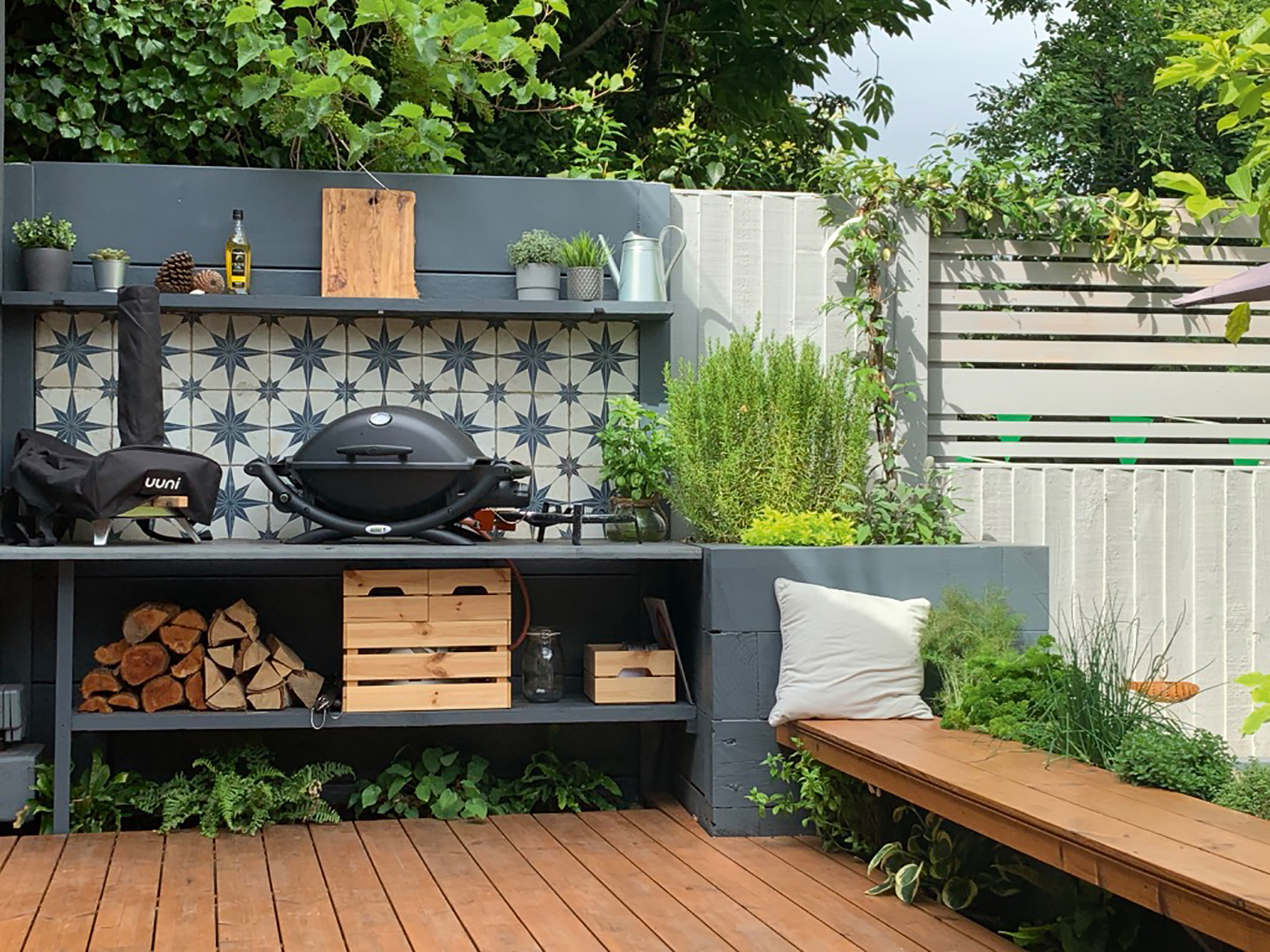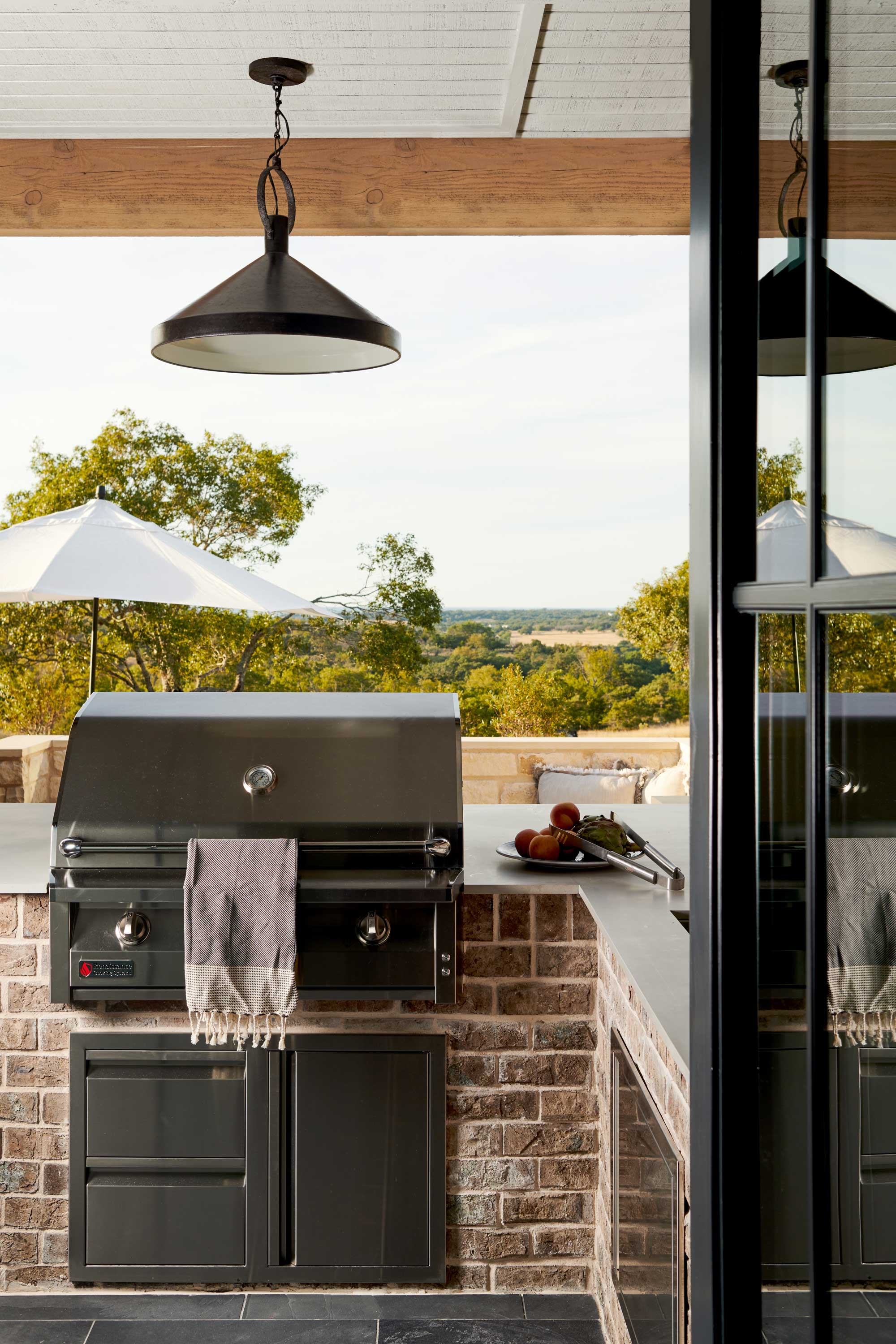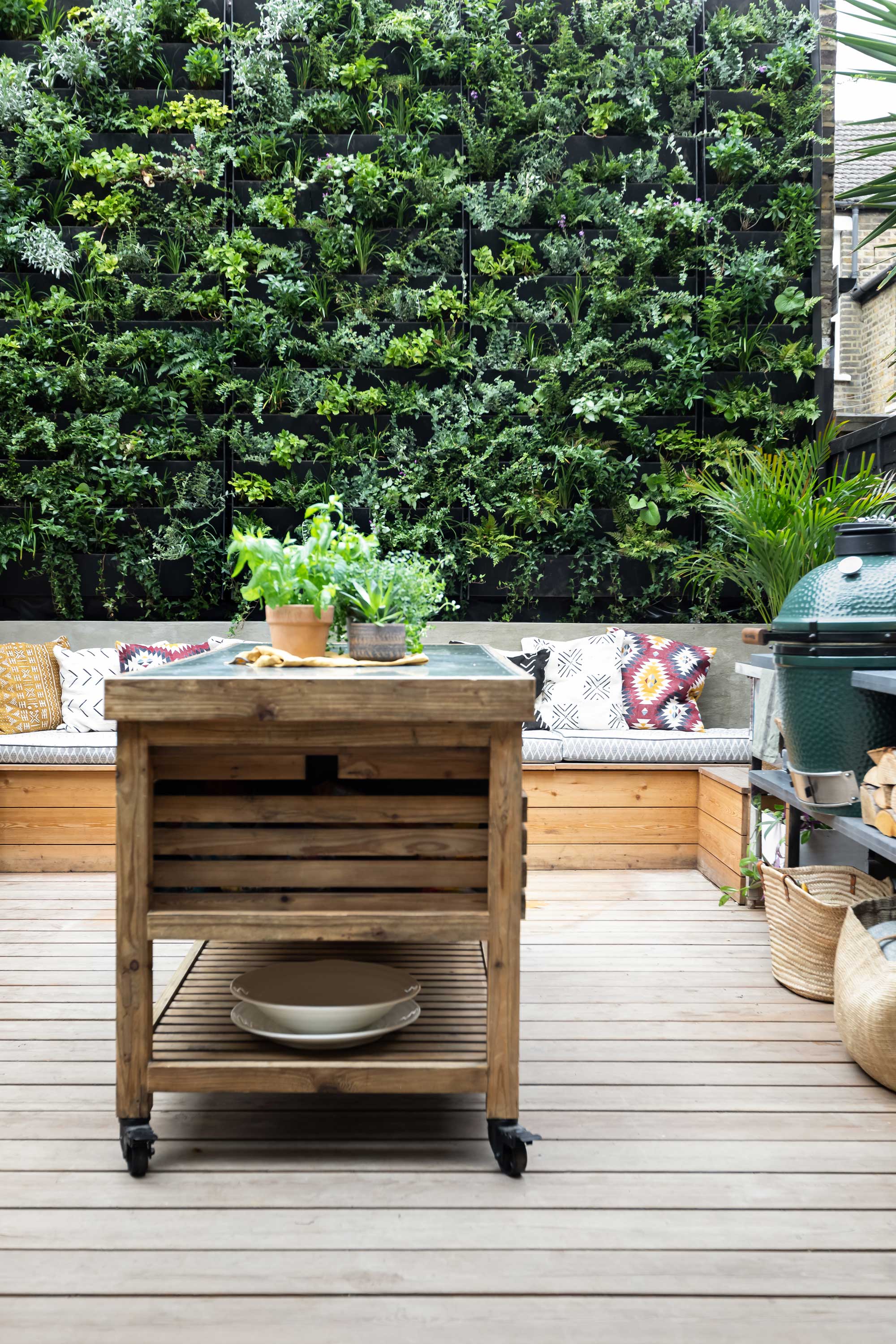
There's no better place to spend time than outside when the weather is on your side, and the best way to enjoy it is with an outdoor kitchen.
Outdoor kitchens come in all shapes and sizes, and you don't need a large backyard to include one in your design. What you need, at the least, are some basics: a grill, a table, and some chairs, but the best examples of outdoor kitchens have a lot more than that. However, as fun as these spaces can be to create, sometimes the wrong choices in material can make them less than ideal, difficult to look after, or even potentially unsafe.
To help you through the process of setting up the perfect outdoor kitchen, we reached out to experts. Take a look at these errors pointed out by them and make sure you avoid them.
1. Not enough lighting

One of the most common errors is to assume your outdoor dining and kitchen will be well lit with natural light, and all you need is perhaps string lights. But just like the indoors, the backyard kitchen also requires proper task lighting when you're cooking, grilling, or chopping. Adding outdoor dining lighting with pendants, chandeliers and more is a good idea.
'When looking at outdoor lighting, it's important to choose fittings that can withstand harsh environments and handle wet and cold conditions,' says Kashi Shikunova, director at Yam Studios. 'People often opt for lower quality fittings that deteriorate quickly outdoors. Investing in higher quality fittings ensures they can endure harsh conditions, provide good quality lighting, and age better over time.'
2. Exposed appliances

'Kitchens of any kind add value to your home, but especially an outdoor kitchen,' says Amanda Wiss, founder of NYC-based home staging company Urban Staging and home organizing company Urban Clarity. 'These make your home much more than just what’s within its walls. Potential buyers will see an entirely new space to inhabit, and increasing livable square footage is always a great thing. One way to ensure this space is long-lasting is by avoiding any appliance that are finished with materials that cannot sustain mild changes in weather. And, choosing weather covers to avoid rusted out appliances.'
Water and snow can cause tremendous damage by staining, degrading, and breaking down surfaces and appliances. So make sure your outdoor bbq is protected with a waterproof cover. The more parts of the outdoor kitchen are covered, the less damage is likely to occur. You could also consider constructing a roof structure to shield your countertops and flat surfaces. Alternatively, you could even bring these appliances indoors when not in use.
3. Wooden countertops

'It's not advisable to use delicate materials that aren't suited for outdoor use,' says Kashi. 'For instance, wooden worktops will deteriorate quickly when exposed to outdoor conditions all the time, necessitating constant maintenance such as covering. It's better to opt for durable materials that are suitable for outdoor use and don't require a lot of care.'
When it comes to outdoor kitchen countertop materials, quartz, sintered stone, natural stone or soapstone are good choices.
4. Open shelving

As you're planning how to build an outdoor kitchen, many homeowners either skimp on storage or include units that might look good but aren't sustainable in the long run.
'Often, people have open shelving in the base of the kitchens, which can create a relaxed and organic look,' says Kashi. 'However, it's beneficial to install doors to cover these shelves to prevent foliage and dirt from getting inside. This not only maintains the kitchen's interior appearance over time but also saves time on extra cleaning.'
5. Corded appliances

'While outdoor kitchens can accommodate a variety of appliances, some are not suitable for outdoor use due to exposure to the elements,' says Lauren Lerner, CEO and founder of Living with Lolo. 'Appliances that are not designed specifically for outdoor use may be susceptible to damage from moisture, temperature fluctuations, and other outdoor conditions.'
'One thing to specifically watch out for are too many corded appliances as they can get wet and become a safety issue,' Amanda agrees.
Make sure before choosing the best gas grills that they are corrosion resistant and have protected wiring and plumbing. Ideally, the best outdoor appliances have sealed exteriors to keep out gnawing rodents and nesting insects.







